Audio and Video Translation Services
Send your audio or video project viral with the help of the UK’s leading audio and video translation company.
Let's get started!
Video Content is King
Video content is King. If a picture tells a thousand words, can you imagine what a video can do?
Just look at the way social media is progressing, with the likes of YouTube, Vimeo, Snapchat, Instagram and TikTok; we are certainly the video generation, and so are your customers.
Let us help you reach new markets and promote your content, with our expertise in re-versioning audio and video content.
You will get an all-inclusive, cost-effective and hassle-free video and audio translation solution. From transcribing, translating a video and voicing it over, to creating subtitles and graphically editing captions or on-screen text for a foreign language version of your video – our professional translators can do it all!
Impress your customers with a version of your audio or video content, including business presentations, corporate and educational videos, e-learning courses, feature films, promo videos and many more.
GoLocalise adhere to rigorous quality assurance processes to monitor quality and precision throughout every stage of an audio translation or video translation project.
You won’t need to worry about the technical side or whether your product meets industry standards.
Check out our Complete Translation Rates Guide.
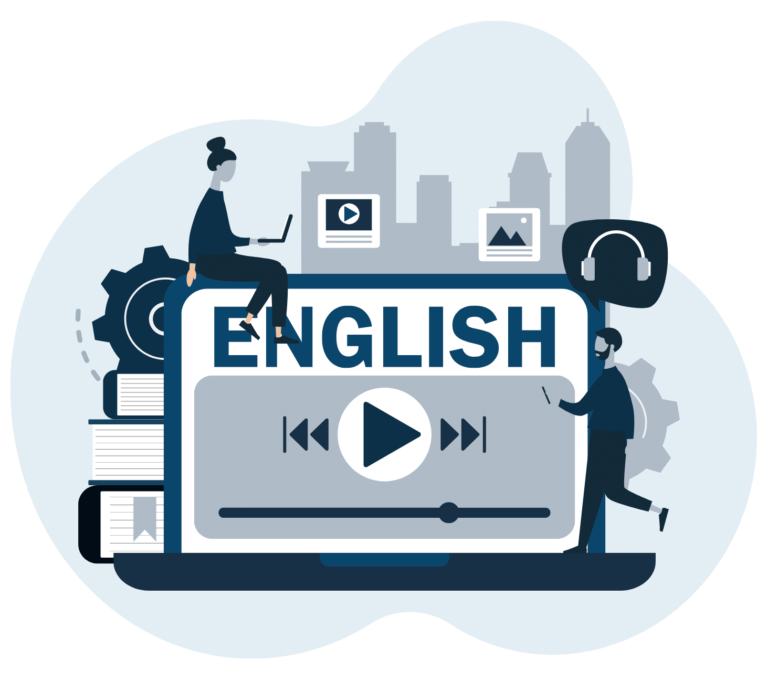

Video content translation services
Our experienced project managers are all trained in voice over, subtitling
and video and audio translation projects and are well aware of the requirements and constraints involved.
We work with industry-standard subtitling software to thoroughly check all subtitle files before delivery, to ensure you get the highest quality possible.
We have more than 15 years’ experience in the localisation field, so you are in safe hands. You can rest assured and trust us to deliver an accurately timed and perfectly translation!
Whether you are a corporate client or a translation or production company, we will adapt to your needs so that you can add video or audio translation services to your portfolio of services.
We are only a call or email away or, if you prefer, visit our get-a-quote page to discuss your video or audio translation project in detail.
You will receive a version of your video or audio file adapted to your project specifications and needs, and best of all, it will WOW your customers.
This Standard Translation Rates Guide is helpful.
Create high impact, first time with GoLocalise as your audio and video translation service provider

WOW your clients with first-class translations carried out by translation experts in that particular industry sector.

Stringent quality control processes – subtitling (English) templates created and checked in-house, and timed to professional standards.

Industry leading subtitling software to create subtitles that are perfectly timed to the exact frame and aesthetically positioned around shot changes.

Your message faithfully and accurately delivered by experienced native subtitlers only.

All translations are thoroughly quality checked by our experienced project managers before final delivery.

You will receive ready-to-use videos with translated burnt-in subtitles – open captions – that are ready to be uploaded to your website. You can customise the style and look of the subtitles (font, size, colour, positioning, etc.).

If you prefer to give your clients or viewers flexibility, why not go for subtitles that can be switched on and off in multiple languages? You can receive closed captions in the format of your choice – ready to be uploaded to YouTube or Vimeo channels, DVD or Blu-Ray.

Go the extra mile by localising all your content. On-screen text and captions in your video can be translated and graphically edited, so that you receive a flawless foreign language version.
Why choose us?

You deserve the best!
Leave your project to the experts at GoLocalise so that you can relax and be assured of getting top-notch results.
Every single detail will be analysed, studied and looked
after so that you do not need to worry.
Some would say it’s not too classy to blow our own trumpet… but we just like to point out two very important details.
We have achieved ISO 9001 Quality Management certification in recognition of our consistent performance and high standards, and ISO 14001 Environmental Management because we care about our planet!
And if you are still curious and want to know more about us, why not have a look at our studio page.
Types of Audio and Video Files Transcription
GoLocalise offers transcription services for audio and video files in over 100 languages and English (including American and British English localisation).
Our expert team of transcribers will create a text version of your video or audio file, and we can also translate and/or voice over your transcript.
There are different variations of this transcription service, all of which will result in a text document containing the dialogue from the source audio or video file:
Caption & Graphic Editing
When localising and translating videos (whether you choose subtitling or voice over), you’ll find that often there are several elements that need to be localised. These elements can be on-screen graphics, text and/or captions.
Our expert project managers will review the video or project file and advise which elements would be best subtitled or graphically edited. If you do not have the project files, worry not; one of our expert editors will be able to re-create the graphics, captions and titles of your video.
Our expert editors work with a multitude of software: to localise graphics we use Photoshop or Illustrator; and After Effects and Final Cut Pro to create motion graphics and visual effects.
Once all elements are in the video, and the graphic elements have been created and localised, we can then rebuild the video and export it to whichever format and codec you need.
We’ll prepare your video project for any platform, including PAL, NTSC, VOD, the Internet, smartphones, game consoles, mp3 players and tablets.
With our facilities and highly skilled operators, your videos are in safe hands!
We use continuous quality control processes to monitor quality and accuracy at each and every stage of a translation project.

Translators are screened not only for linguistic ability but also for technical knowledge. Applicants must pass interviews and rigorous subject-specific language tests. Furthermore all our translators have at least five years experience in their sector.

Each translated document is edited by a second translator to ensure accuracy and to address any linguistic issues. Again, the work is assigned to a specialist according to subject matter.

At GoLocalise, the translation process goes one step further with a final quality assurance step. A third translator revises the document to verify that editing changes and formatting have been properly implemented, and that there are no…
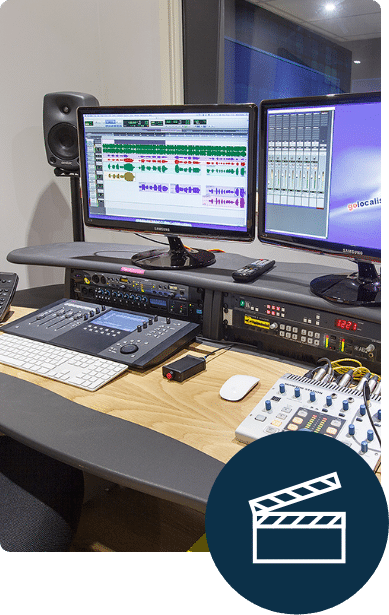
Working alongside translation & production companies
Having a strong audiovisual department on your side makes all the difference!
With GoLocalise you get an experienced and motivated team of professionals that work regularly alongside translation and production companies.
We understand the technical requirements necessary to produce perfect foreign language and English voice overs.
Our project managers will assist you along the way and we’ll break down the process and present it to you without the big words or technical industry jargon, so you don’t need to worry about the technical aspects and can simply concentrate on growing your business.
By working with GoLocalise you’ll be able to offer additional services, i.e., voice over, subtitling and translation to your clients, with a partner who will deliver and on whom you can truly rely.
When working with translation companies we provide easy-to-follow guidelines so that you can provide your own translations for us to “convert” into subtitles, or voice over your translated scripts.
Or if you prefer, we can take the entire project off your hands and keep things simple for you – it’s your call!
We’re equally used to working with production companies, so we can deliver your translations or subtitles in any language and format of your choice – either burning-in the subtitles onto the video for you, or supplying you with XML or PNG files for you to do yourself – Adobe After Effects and Final Cut Pro ready files.
Reach your target market
Don’t leave your important communication to chance. Make sure your message is clearly understood by
your audience and choose GoLocalise for your next voice over project. Check out our latest case studies.
We have thousands of passionate and professional voice over artists ready to work with you. Meet some of them in our blog stories.
No matter the type of voice you are looking for, we’ll either have it in our books or find it and source it for you. We’ll organise a casting and ensure you get the perfect voice to suit your needs.
You will also benefit from having your own dedicated project manager – a single point of contact – to guide you through your project, answer any questions you may have and make things a whole lot easier.
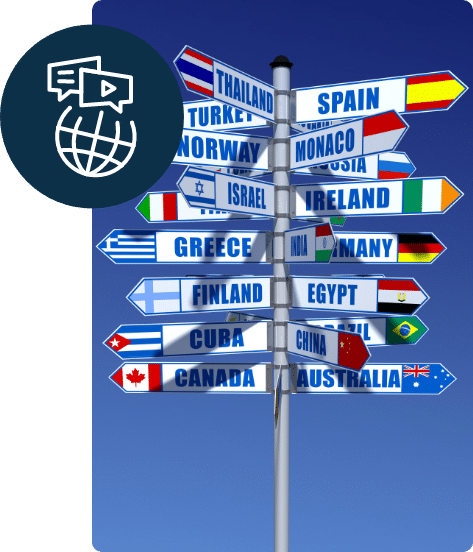

Meet your dedicated project manager
Your project will be in the safe hands of one of our multilingual project managers. They will guide you through every step and ensure you understand the process.
Our industry has a tendency to use lots of technical jargon but your dedicated project manager will be on-hand to untangle the mess and explain all you need to know to ensure you only pay for what you need.
If you need help in choosing the right voice over talent to deliver your message then just ask your project manager.
From booking our voice over recording studios to ensuring you project is delivered on time in your chosen media, relax and let your experienced project manager take care of everything.
You will receive unparalleled attention to detail and customer focus at competitive prices. You’ll wish everything was as easy as a GoLocalise voice over!
Your most discerning customers will thank you for choosing our modern state-of-the-art recording studios. Every detail has been carefully thought through for your comfort, leaving you to simply focus on what matters most – the voice over session.
Your recordings will sound beautiful and crystal clear thanks to our high-end studio sound-proofing and audio equipment, i.e. ProTools HD and Neumann microphones.
Maximise your budget by reducing the need for retakes with the help of our experienced in-house sound engineers who will professionally capture and edit your audio.
And for those recordings in languages which neither you nor your client speak, we’ll bring a qualified pro to your session to add that essential ingredient.
To make you feel right at home, we provide high-speed Wi-Fi Internet and air-con is available. And last but not least, we have the biggest cookie jar you’ve ever seen, that’ll make your custom brew taste even sweeter!
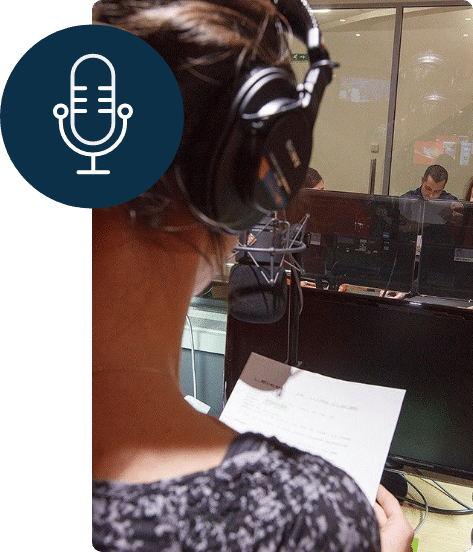
Learn more about Translation Services
Let's get started!
A Translation Masterclass
At GoLocalise nothing is too much hassle! The expert team of project managers, translators and linguists are always at hand to ensure your content is perfectly localised – whatever the media. You’ll benefit from a company with over 15 years’ experience, an in-house subtitling team, and in-house state-of-the-art recording facilities!
Audiovisual translation, or AVT, is a highly specialised type of translation, which is increasingly popular in today’s digital world. We are surrounded by audiovisual content, so it makes sense that there is a type of translation that is suitable for the modern technological world.
AVT requires some of the same skills as general translation but also poses additional challenges. In subtitling for instance, the translator must fit the translation into the time and space constraints posed by the video; whilst in voice over the length of the translation must be considered and match the original as closely as possible. And these are just a few examples.
AVT is certainly no easy task and it takes a team of experienced professionals to do it well. This is where we can help you. We are highly specialised in AVT, so you can trust us to deliver products which look good, sound great and are perfectly suited to your target audience, all in your preferred format.
We know that a game doesn’t just have to look good and play smoothly, it also has to sound great and read well too. That’s why we, at GoLocalise, provide all our clients with carefully selected linguists, who are not only specialists in the video game field but are also gamers themselves.
We look after every single detail when localising games into foreign languages and always use the latest glossaries for all the current video game platforms, Wii, PlayStation, Xbox, etc. so that terminology and platform word choices are always spot-on.
GoLocalise provides your company with e-learning translation, localisation and voice over services, leaving you with a ready-to-host product (also Audiobooks localisation)
We only employ highly skilled linguists who have extensive experience in e-learning and a sound understanding of the particular industry sector they are dealing with.
Our service includes the management of the whole process and the delivery of content adapted to foreign markets.
The steps and services involved in any end-to-end e-learning project are: the translation of the course and on-screen text; the localisation of the course graphics; the voice over recording of the course with your preferred voice over talent/s; and the quality control during which the localised course files are reviewed against the original files.
Learn more about Translation Services
Let's get started!
What our happy customers say
Lucas Cole
Sales and Marketing Director at Epipheo
Kerry Gillies
Director at Synergy Language Services

Jonathan Lapps
Account Manager at Epipheo
Nicola
English UK Voice Over Talent
Josie Gallo
Content Co-ordinator at Medical Aid Films
Stefanie Smith
Producer at Education First
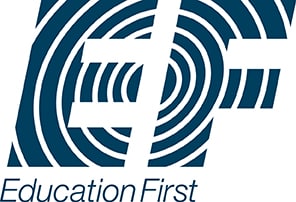
Frequently Asked Questions
Apart from our translation services, we provide a comprehensive suite of solutions including localisation, transcription, and voice-over services. Our aim is to serve as a complete hub for all your audiovisual content requirements, ensuring each piece is customised to resonate with global audiences.
Upon receiving your content and requirements, we assign the project to a translator or a team of translators best suited for the task. Once the initial translation is completed, it undergoes rigorous quality checks. We then offer our clients a review period for feedback before finalising the translation.
The choice between subtitling and dubbing largely depends on your target audience and the nature of your content. We work with you, providing insights on audience preferences in specific regions, to help decide which approach best suits your project’s goals.
Yes, we’re equipped to handle translations in a multitude of languages, all while maintaining consistent quality. Our vast network of translators allows us to efficiently manage multilingual projects, ensuring your content reaches diverse audiences effectively.
Pricing for audiovisual translation often depends on multiple factors, including the length of content, complexity of the subject matter, desired turnaround time, and specific language pairs required. For instance, translating into less common languages might be pricier due to limited expert availability. Furthermore, services like dubbing or specialised localisation might carry additional costs compared to standard subtitling.
At GoLocalise, we’re fully aware of the dynamic and often fast-paced demands of the audiovisual industry. Our team is well-equipped to handle projects with tight deadlines, ensuring we deliver translations of the highest quality. However, it’s important to note that for projects requiring an especially quick turnaround, we might need to apply a rush fee to accommodate the expedited process.
Most importantly, our commitment to quality remains unwavering. We will only accept projects we are confident we can deliver to our exacting standards. It means that if we take on your urgent project, you can be assured of a result that meets GoLocalise’s benchmarks for excellence, even with the tight timeline.
Maintaining the original tone and intent of content is paramount in professional translation services. Our team of translators, well-versed in both the language and its cultural nuances, prioritises retaining the essence of the original material. It’s not merely about word conversion; it’s about capturing the emotion and essence behind every phrase. By closely collaborating with clients and understanding their objectives, we ensure that the heart and soul of the content remain intact across languages, respecting both linguistic accuracy and emotional resonance.
Handling sensitive or potentially controversial content requires a tactful and nuanced approach. Companies rely on translators who are not just linguistically proficient but are also culturally aware and can provide insight into how specific topics may be perceived in the target region. This ensures translations are respectful, appropriate, and tailored to avoid unintentional misunderstandings or offences.
Absolutely. At GoLocalise, we understand the importance of ensuring the translated content meets your expectations and aligns with your objectives. Once you receive the initial translation or subtitle draft, you have an opportunity to review it. If there are any aspects you’d like adjusted, we offer a free round of amends to ensure the final output is to your satisfaction. This collaborative approach underpins our commitment to delivering excellence and building lasting client relationships.
Quality assurance is central to our ethos. Our translators are not only linguistically adept but also culturally informed. After the initial translation, a separate team reviews the content for accuracy, consistency, and cultural relevance. This two-tiered approach guarantees the quality of our work.
Absolutely. We have a diverse team of translators with expertise in various industries. Whether it’s medical, legal, technological, or any other niche sector, we ensure that your content is handled by experts familiar with the industry-specific terminologies.
Client confidentiality is a top priority for us. Our translators and staff are bound by strict non-disclosure agreements. We also employ secure data transfer and storage protocols, ensuring your content’s privacy throughout its journey with us.
Absolutely, we’re well-versed in supplying translations in this format upon request. Presenting the original and translated content side by side streamlines the process for voice artists, providing a clear reference. This also ensures that the translated version aligns closely with the original in tone, intent, and length, enhancing overall accuracy and efficiency during voice-over projects.
Using a two-column format with the source and target languages side by side offers numerous advantages. For voice-over sessions, this layout aids voice artists in maintaining the right pacing, ensuring translations fit within the same timeframe as the original. The direct comparison also allows for swift resolution of discrepancies or uncertainties, facilitating efficient decision-making. Additionally, this clear structure is beneficial for clients wishing to provide feedback, as they can easily annotate specific lines or sections, fostering a more collaborative approach.
The Complete Solution To Adapt Your Content
Looking to get your entire project under one roof? Look no further, we can help you make life easier for you!

- Neumann Microphones
- On-hand Sound Engineers
- Talented Voice Over Actors
- State-of-the-art Recording Studios

- Tailored to Your Business
- Stringent Quality Control Process
- Laser-Focused Project Managers
- Global Network of 600+ Languages

- Professional Subtitlers
- Open/Closed Captions & Web
- Industry-Standard Software
- Subtitle Burn-in & Graphic Editing

- Improve accessibility
- Reach a wider audience
- Increased SEO and video views
- Maximise your video's engagement












